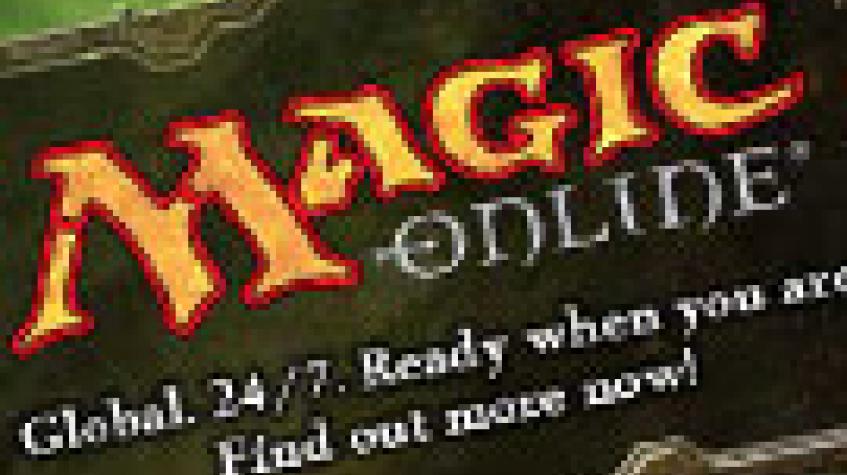
Magic the Gathering Online (MTGO) has become, at the very least, a moderate success; some would even call it the future of MTG.
While it’s probably too early to tell for certain how it will all turn out, there’s good reason to believe that for thousands worldwide, MTGO is the only place to play Magic the Gathering[1]. This has not, however, always been the case. MTGO is, in fact, only the latest in a series of platforms designed for playing the game at home on a computer. This then is a history of playing Magic online[2].
The Beginning: Apprentice
Probably the earliest online Magic the Gathering platform was Apprentice, developed by Dragonstar Studios from 1996-1999, and based on an earlier program from 1995 by Tan Thor Jen. Like MTGO, Apprentice went through a series of revisions, with 1.4 being the latest before running up against the Hasbro legal department. Apprentice was for years the platform of choice for professional Magic players looking to test their decks and hone their playing skills online. It was a simple platform with no rules enforcement; in essence, a virtual tabletop with a few helpful icons and spinners to keep track of things like phases and life totals. Everything on the table had to be manipulated by hand (well, mouse). The deck builder gave the player unlimited access to every card in the game, with new sets being added within days of their physical release.Since the only automatic functions of the interface were a counter to keep track of the number of cards in a player’s library and an auto-untap function[3], players had to watch each other closely to make sure all resources were managed correctly[4]. Rules text was printed on the cards themselves. Flavor text was non-existent. This was, by all accounts a no-frills, let’s-get-down-to-business platform.
Installing the Apprentice software was not difficult: a typical download, using a link most likely provided by a friend who already had it installed. The difficult part was finding an opponent. When Apprentice was released, instant messaging was still a couple years in the future. In fact, AOL was yet to happen. Instead, what we had was something called MirC. The idea was you logged on to the internet and, using /commands similar to opening a chat window in MTGO, entered a room where, if you were lucky, you might find someone looking to play a game. You then used whatever internet protocol was available to both of you to hook up with that person[5]. The only time I successfully used Apprentice myself was in late 1996 with my friend Woody, but the connection was made by first contacting him by phone and agreeing that I would call back and he would let the call go through to his computer modem instead of answering it himself[6].
One last word about Apprentice: for years it was not officially sanctioned by Wizards of the Coast; in fact, the owners of the Apprentice software were at one point served legal papers by WotC ordering them to cease and desist (or whatever the legal terminology is). However, Apprentice has since then been officially acknowledged and licensed by Wizards of the Coast and an open source version of the software, v2.0, is currently available.
[1] The reasons for this are varied and include, but are by no means limited to, distance to a location where Magic is played, lack of available time away from home, and a distaste for being in a room overly full of people, many of whom have a questionable relationship with the concept of personal hygiene.
[2] Disclaimer: This is by no means an exhaustive listing of every online platform. Some platforms were simply repackaging of existing platforms (done for legal reasons), others were flat out failures. I have deliberately chosen to leave these out and concentrate on the three that had some bearing on the development of the current system.
[3] Which may or may not have been present in v1.0. My memory is somewhat fuzzy on Apprentice matters, as I never used it much.
[4] A euphemism for “the other guy wasn’t trying to cheat.”
[5] At least that’s the way it worked in theory. For me the reality was that I somehow managed to get some sort of self-replicating program onto the computer at work from the MirC /magic chat room. I think it may have been a porn site, but I’ll never know for sure, as I quietly logged off the boss’s computer and never tried to play Apprentice at work again.
[6] Yes, we had dial-up back then. Didn’t everyone? (Incidentally, I lost badly.)
Coming soon: Part 2 -- The Microprose Years

